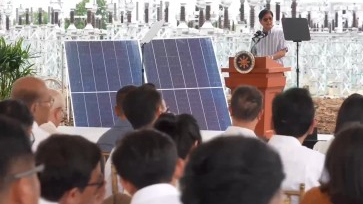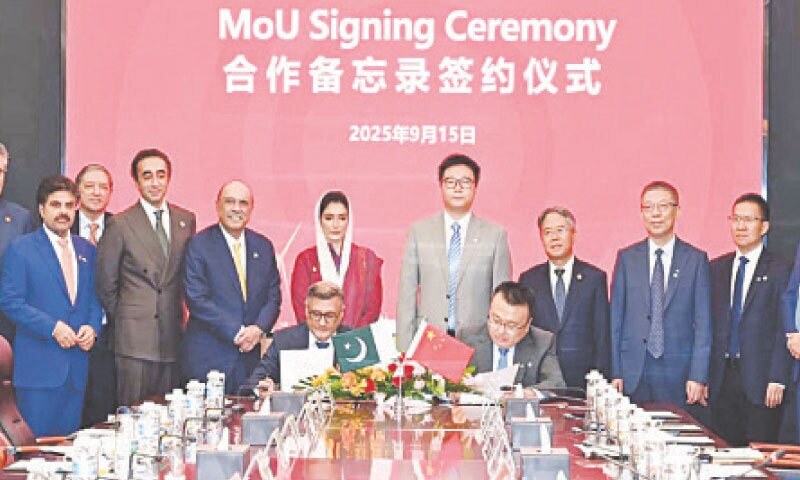By Jocelyn Reyes
Copyright malaya

PRESIDENT Ferdinand Marcos Jr. yesterday vowed to sustain efforts to advance the development and widen the use of renewable energy in the country, as he led the inauguration of the first solar baseload power plant in the Philippines.
The President, in addressing the switch on of the Citicore Solar Batangas 1 Power Plants in Tuy in Batangas, assured the public of the continued efforts of the government to attract more investments in the renewable energy sector and streamline project implementation in the country.
“Dito sa Batangas, pinapakita natin sa buong mundo na ang solar power ang daan tungo sa isang pangmatagalan at malinis na paraan nang pagbibigay liwanag sa ating mga tahanan at industriya (Here in Batangas, we showed the world that solar power is path towards a sustainable and clean way of lighting our homes and industries),” Marcos said.
The Citicore Solar Batangas 1 Power Plant is a hybrid solar and battery facility that will produce up to 197 megawatts of renewable energy, and is expected to power approximately 158,000 households, and reduce carbon dioxide emissions by 265,000 tons annually.
The project spans two barangays in Tuy, namely Lumbangan and Luntal.
Solar power and agriculture combined
The President said one feature of the Citicore Solar Batangas 1 is it innovatively combines solar power generation with agriculture by using agrivoltaics—a method of planting crops beneath and around solar panels.
Marcos said this lessens land-use competition between agriculture and energy by maximizing land productivity, increasing farmers’ income, and further enhancing food security.
“Today, we just witnessed the energization of the first hybrid agro-solar and battery storage system in the country that will bring hope for a safer and cleaner future, while at the same time helping secure our food supply,” he said.
“Another new feature of this project is the fact that there is the use – the same land to grow crops, to grow vegetables, to grow agricultural products, so that the land is categorized as agro-energy, which is a new category altogether,” he added.
Streamlining RE infrastructure
The President said as investors such as Citirone continue to put their facilities and businesses in the country, the Philippine government would continue to sustain programs that would provide an environment that is conducive to doing business and expand renewable energy supply in the country.
Marcos said among these initiatives are the Energy Virtual One-Stop Shop and green lanes, which expedite the approvals of projects of national significance, such as renewable energy.
He said the Department of Energy and the National Grid Corporation of the Philippines also continues to ensure that the transmission lines and other infrastructures that are needed to ensure the supply of power in the country are available.
“Makakatiyak kayo na ang inyong pamahalaan ay patuloy na maghahanap ng mga paraan upang makabuo ng mas malinis na enerhiya na magbibigay liwanag sa ating Bagong Pilipinas (You can be sure that your government will continue to seek ways to generate cleaner energy that will light up our New Philippines),” he added.
LGU link-ups with clean energy players
The President also asked local government leaders to strengthen partnerships with clean energy investors, particularly in agro-solar projects that support both food and energy security.
Marcos said he looks forward to Citicore Renewables’ commitment to provide five gigawatts of clean energy in the next five years to support the country’s goal of achieving a 50 percent renewable energy share in the energy mix by 2040.
“We also look forward to the realization of Citicore’s goal to add five gigawatts of clean energy in the next five years,” he added.
Citrone President and CEO Oliver Tan said they are committed to hitting their 1 gigawatt target up to the first quarter of 2026, and five gigawatts in the next five years.



